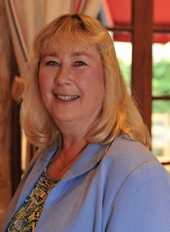 July 8, 2014 – Fans of Carmel-by-the-Sea’s year-old farmers’ market will still be able to find it in Devendorf Park on Thursdays, but starting on July 17 they should expect several changes.
July 8, 2014 – Fans of Carmel-by-the-Sea’s year-old farmers’ market will still be able to find it in Devendorf Park on Thursdays, but starting on July 17 they should expect several changes.
In something of a compromise hammered out over several hours of meetings last week, the council on July 1 voted to extend the contract of the market manager, the West Coast Farmers’ Market Association, for 120 days and to allow the market to stay for that period in Devendorf Park. Also during the 120 day period, the market manager may work with a new ad-hoc council farmers market committee led by Carrie Theis and Steve Dallas to experiment with an alternative location, if they so choose.
The council also voted to restrict the market operation in many ways:
• The market will, as of July 17th, only be able to operate within the park and cannot occupy the block of Mission St. that it previously has;
• The market manger must follow a more strict interpretation of the markets’ original guidelines by eliminating arts and crafts purveyors as well as prepared food vendors not based in Carmel. The guidelines also require that produce be mostly organic, and if followed to the letter, the guidelines obligate any local restaurants and caterers wishing to offer prepared foods to include at least one ingredient from one of the participating farmers in dishes sold at the market.
• The hours of the market will move up to 8:30am to 12:30pm, from 10am to 2pm;
• All vendors must come from Monterey, Santa Cruz or San Benito County.
The market had originally operated in the Sunset Center parking lot. But it was only able to draw the enthusiastic following it needed to sustain itself after it moved temporarily to Devendorf Park and Mission St.

As it turned out, the move was not just good for the vendors and manager, but was a cause for celebration by many community members, who prized the celebratory community atmosphere it generated—as well as the fresh produce and other goods it provided. And some downtown merchants reported that the new shoppers that the market was bringing to the city center were also boosting their own business.
“It was meant to be community building, but it exceeded my expectations,” said Victoria Beach, co-chair of the original ad-hoc council committee that developed the plans for the market. “I don’t think I’ve ever gotten so much spontaneous positive feedback for anything I’ve done.”
But the council ultimately decided to more tightly enforce the original rules and adopt the additional restrictions as a concession with downtown merchants who argued that some market vendors were competing with them for business, and that the market’s customers were causing traffic and parking problems for them.
Jeri Lami, owner of the West Coast Farmers’ Market Association, while very pleased that the market will stay downtown, said he was deeply disappointed with the extent of the restrictions being placed on the market.
Lami said that being downtown allowed the market to develop in just one year as much as markets more commonly take three to five years to develop. He said he wants to continue to work with the council to make the market a success, but he’s concerned that the restrictions may be setting it up to fail.
“I just hope that given time, [the ad-hoc committee and council] will lift some of the constraints to being more successful,” Lami says.
“Seventy-five percent of the vendors that we had have been shown the door” by the restrictions, he says, noting that because there isn’t much commercial production of some agricultural products, like organic stone fruit, in our tri-county region, the market may no longer be able to stock them. “It really deprives the area of the quality of the market that we were giving them.”
Meantime, this Thursday July 10, the market will remain as before on Mission St. and in Devendorf Park from 10am to 2pm. The changes passed on July 1 will not go into effect until July 17.
About the author
SARAH WOOD—founding editor and publisher of Edible Monterey Bay—has had a life-long passion for food, cooking, people and our planet.
She planted her first organic garden and cared for her first chicken when she was in elementary school in a farming region of Upstate New York.
Wood spent the early part of her career based in Ottawa, Canada, working in international development and international education. After considering culinary school, she opted to pursue her loves for writing, learning about the world and helping make it a better place by obtaining a fellowship and an MA in Journalism from New York University.
While working for a daily newspaper in New Jersey, she wrote stories that helped farmers fend off development and won a state-wide public service award from the New Jersey Press Association for an investigative series of articles about a slumlord who had hoodwinked ratings agencies and investment banks into propping him up with some early commercial mortgage securitizations. The series led Wood to spend several years in financial journalism, most recently, as editor-in-chief of the leading magazine covering the U.S. hedge-fund industry.
Wood now lives with her family in Washington, DC, where she is a freelance writer and manages communications for Samaritan Ministry, an antipoverty and antiracist nonprofit that provides struggling Greater Washington residents with highly personalized and compassionate life counseling and coaching.
- Sarah Woodhttps://www.ediblemontereybay.com/author/swood/
- Sarah Woodhttps://www.ediblemontereybay.com/author/swood/
- Sarah Woodhttps://www.ediblemontereybay.com/author/swood/
- Sarah Woodhttps://www.ediblemontereybay.com/author/swood/



